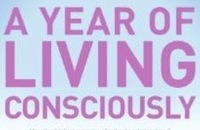A CONSCIOUS LIVING PRACTICE FOR TODAY – DECEMBER 9
 If way to the Better there be, it exacts a full look at the Worst. — Thomas Hardy
If way to the Better there be, it exacts a full look at the Worst. — Thomas Hardy
BEHAVIOR AND CONSEQUENCES
You have described and interpreted a behavior you’ve observed, and you have shared the feelings that you are having as a result of the behavior or interaction. Step Four is to discuss the consequences of the behavior. This does not mean to threaten, or even to reasonably share what will happen if the behavior occurs again. The consequences are internal; what you are going to be searching for inside of yourself, and then sharing with your partner, is the behaviors with which you are likely to respond as a result of the event that took place. This requires paying close attention to your history, your patterns, and your own sometimes dysfunctional or unproductive ways of relating to others.
What You’ve Said So Far: I noticed you watching that woman as she walked by and then you just commented on what nice legs she has. When you watched her, and then when you commented on her legs, I assumed that you were feeling attracted to her. I felt insecure and sad, because I’ve been feeling unattractive lately. I felt scared that I might be losing you to someone you find more attractive.
Step Four: Stating Consequences. Now you’ve shared the who, the what, the why, and the how, it is time to share with your partner another when and what: you’re going to more fully explain what you are inclined to do when your partner behaves in this way.
“I find myself withdrawing from you to avoid these feelings, and I also notice that I avoid doing things in public with you so I don’t have to face this.”
Observe: Again, this is essence-level communication. You’re taking responsibility for your behavior, and you’re telling your partner what impact she or he has on you. It doesn’t get much more honest than this.
A CONSCIOUS LIVING PRACTICE FOR TODAY – DECEMBER 9
Recognize the things you do that are linked to the behavior of others. Take full responsibility, and peel back the layers of blame and rationalization to face head-on the ways in which you participate in conflict and in perpetuating behaviors others exhibit that create problems for you. Whose team are you on?
Purchase “A Year of Living Consciously” by clicking the cover below:



